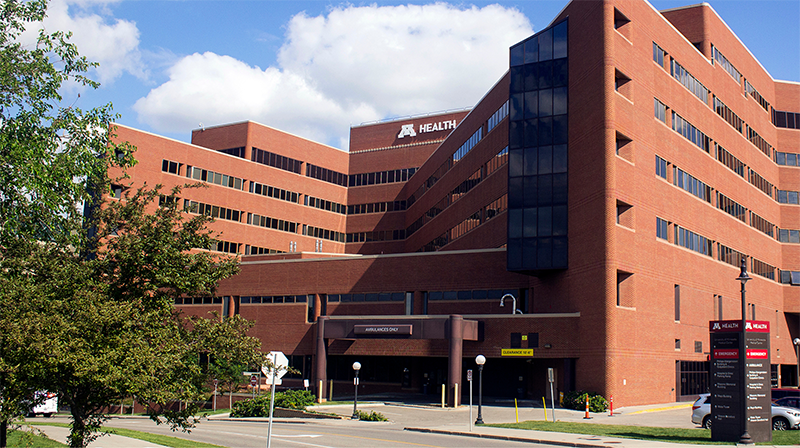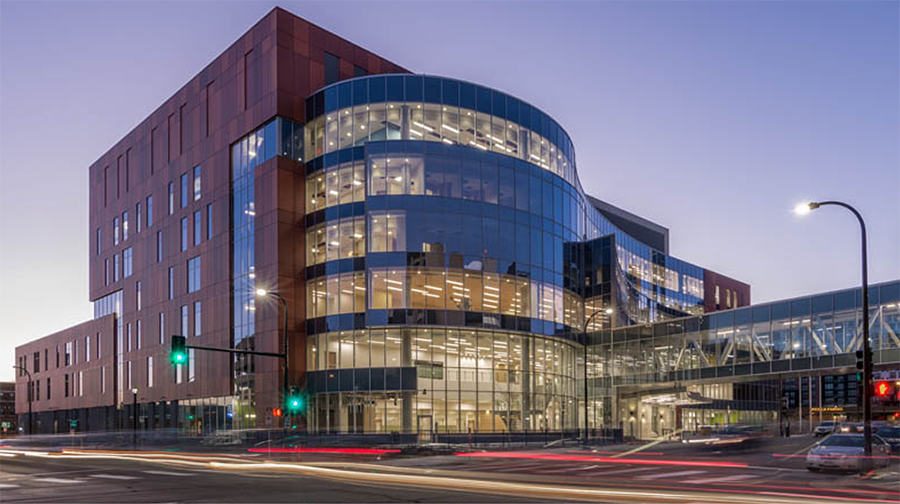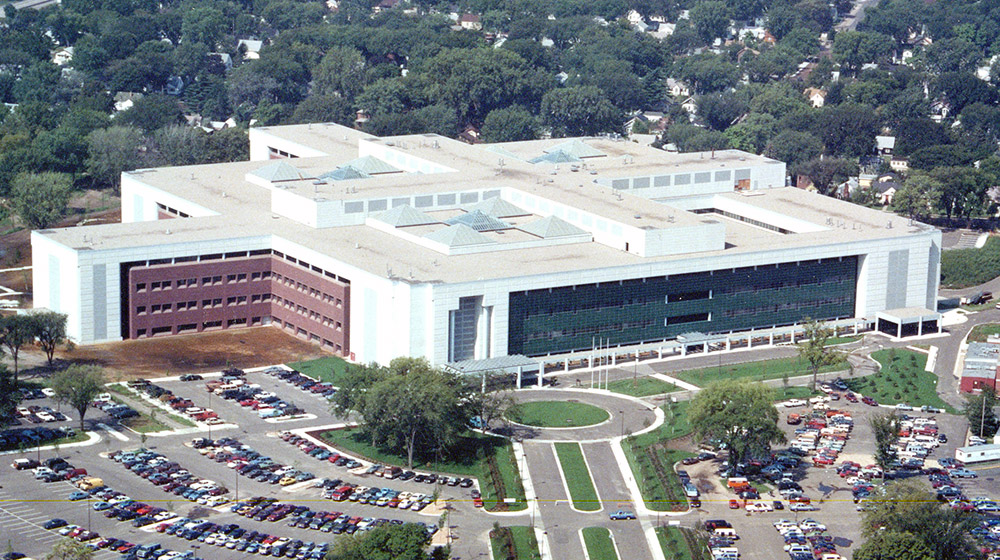Training Sites
EDUCATION TRACK
For residents interested in becoming professional medical educators, we offer an innovative, longitudinal elective in educator development. While all of our residents receive training in education skills, those interested in becoming professional clinical educators have the option of additional training, career development and mentorship through NET during their PGY-2 through PGY-4 years of residency.
The teaching track provides residents with unique opportunities to teach in a variety of settings over the course of three years under guided mentorship, receiving formative feedback and building individual teaching portfolios along the way. They also complete education scholarship through mentored curriculum development projects that are completed throughout the duration of their participation in NET. Residents also receive formal training in teaching skills, curriculum development, administration and leadership skills through regularly occurring didactic sessions throughout each year.
NET seeks to improve neurology residents’ confidence in their ability to teach effectively, to provide them with the skills needed to be effective teachers to diverse learners in diverse settings, and to facilitate their career development as future clinician educators.
The Neurology Educator Track started in 2015. Since then we have had two neurology residents enrolled per resident class. Our first inaugural members will graduate this spring (2019). In 2018, we were delighted to have two residents from PM&R join our teaching tracks and we are looking forward to ongoing collaboration with PM&R. More recently, neurology residency programs outside of Minnesota have expressed interest in adopting our model at their institutions.
NET Leadership
Jamie Starks – Director, Neurology Faculty Mentor
Sam Maiser – Co-Director, Neurology Faculty Mentor
Ezgi Tiryaki - Neurology Faculty Mentor
SPRINT (Scientific Pathway & Research in Neurology Training program)
The neurology residency program seeks to offer a 1:1 mentored research experience for residents interested in being leaders in academic neurology. The program pairs up to one resident per year with a mentor that allows for them to build a CV, grow their publication history, and ideally nurture an application for early career funding awards. Acceptance to the program affords protected time on elective rotations, and at least 3 months of dedicated time for research. Basic coursework is also offered to enhance familiarity with IRB procedures, research methodology and statistics. Applications are solicited during the winter of PGY-1 year, with selection of a mentor in the spring of the PGY-1 year.
Current SPRINT pathway residents
1. Abhigyan Datta [PGY-3]
2. Omair Lodhi [PGY-4]
SAMPLE SCHEDULE
PGY1
- Regions Internal Medicine - 2 blocks
- HCMC Internal Medicine - 1 block
- HCMC Emergency Medicine - 1 block
- Regions Cardiology - 1 block
- Regions Psychiatry - 1 block
- HCMC Neurology - 1 block
- University Stroke - 2 blocks
- Regions ICU - 1 block
- VA Internal Medicine - 2 blocks
- Neurology Bootcamp - 1 block
PGY2
- University Neurology - 5 blocks divided between general neurology and neurocritical care
- Dementia - 1 block
- HCMC Neurology Stroke - 2 blocks
- Epilepsy - 1 block
- HCMC Night Float - 1 block (two, non-consecutive half blocks)
- UMMC Night Float - 0.5 block
- VA Neurology - 0.5 block
- North Memorial Neurology - 1 block
- Elective - 1 block
PGY3
- Neuropathology - 1 block
- University Pediatric Neurology - 1 block
- HCMC Neurology - 1 block
- University Neurology - 1 block
- VA Neurology - 2.5 blocks
- VA EMG - 1 block
- HCMC Night Float - 1 blocks (two, non-consecutive half blocks)
- UMMC Night Float - 0.5 block
- Neuromuscular Clinic - 1 block
- Elective - 2 blocks
- Epilepsy - 1 block
PGY4
- Neuroimmunology Clinic - 1 block
- University Neurology - 1 block
- UMMC Night Float - 1 block (two, non-consecutive half blocks)
- HCMC Night Float - 0.5 block
- Elective - 2.5 blocks
- Regions Neurology - 1 block (weekday consults)
- VA Neurology - 2 blocks
- Movement Disorders Clinic - 1 block
- HCMC Neurology - 1 block
- Pediatric Epilepsy - 1 block
- University Pediatric Neurology - 1 block
UMMC Details by Year
G1 Neurology Residents
Exclusively on the stroke service, taking care of primary stroke patients. Resident responsibilities include making sure each patient has a completed stroke work-up, determining the mechanism of stroke, secondary stroke prevention and work with the interdisciplinary team to determine the disposition of patients.
Hours:
7:00 am - 5 pm Monday - Friday
7:00 am - end of rounds on Sundays
G2 Neurology Residents
Junior residents divide their time between the stroke/neuro-ICU service and the general service, alternating every two weeks. They are mostly responsible for the care of neurology inpatients which include patients with vascular disease (e.g. ischemic stroke, minor hemorrhages, vascular malformations, intravascular procedure candidates), myasthenia gravis exacerbations, CIDP exacerbations, rapidly progressive dementias and epilepsy patients. Each junior resident on the team will take two overnight calls on two non-consecutive Saturdays during this rotation. A dedicated night float resident takes call six days of the week other than Saturday.
Hours:
7:00 am – 7:00 pm Monday - (every other) Saturday
G3/4 Neurology Residents
Ward senior responsibilities include supervision of the junior residents and medical students on the inpatient service, teaching and patient care. The ward senior assigns admissions and consults, supervises sign-in and sign-out rounds and arranges cases for the weekly Clinical Neuroscience Joint Conference.
Hours:
7:00 am – 5:00 pm Monday - Friday
7:00 am – 7:00 pm Sunday
Nightfloat Residents
There is a dedicated night-float resident who is responsible for new admissions, cross cover of inpatients, and new overnight consults. A vascular/neurointerventional fellow and an attending for each of the teams are available 24 hours a day to provide supervision at all times. G2, 3 and 4 residents each have a total of six weeks of night float at the university hospital and Hennepin County, split into three two-week blocks at either site, each academic year.
Hours:
7:00 pm – 7:00 am Sunday night to Saturday morning
HCMC Details by Year
G1 Neurology Residents
Time is spent on the general neurology service, seeing consults & working with the senior residents.
Hours:
7:00 am – 5:00 pm Monday - Saturday
G2 Neurology Residents
Time is spent leading the stroke service. Manage & lead team of off-service interns/residents, medical students & nurse practitioners. First responder for stroke codes.
Hours:
7:00 am – 7:00 pm Monday - Saturday
G3/G4 Neurology Residents
Ward senior responsibilities include supervision of the junior residents and medical students on the inpatient service and teaching as well as patient care. The ward senior assigns admission and consults, supervises sign-in and sign-out rounds, and arranges neuroradiology rounds.
Hours:
7:00 am – 7:00 pm Sunday - Friday
VAMC Details by Year
Neurology Senior Residents
The senior resident organizes and supervises the team.
Hours:
8:00 am – 5:00 pm Monday to Friday
8:00 am – 12:00 pm when rounding on weekends
5:00 pm – 8:00 am during Home Call
University of Minnesota Medical Center

The inpatient neurology team administers care to the neurology ward patients and provides consultative service to the hospital. The inpatient team consists of one neurology senior resident (G-3 or 4), 2 neurology junior residents (G-2), 1 neurology intern (G-1), 2-3 medical students and often one or more medicine G-2 residents. The neurology residents at UMMC manage all aspects of patient care and perform all procedures, under faculty supervision, for all patients admitted to the neurology inpatient service. Neurology residents are given progressive responsibility for patient care in cooperation and close communication with attending neurologists.
Hennepin Healthcare

The service is divided into a general neurology consultation-only service and a stroke service.
The general neurology consult service is headed by a neurology senior resident (G3 or G4) and staffed by a neurohospitalist, while the stroke team consists of a neurology G2 resident, a staff physician with special expertise in vascular neurology or neuro-critical care. Medical students and rotating residents from other services, including a neurology G1 resident, two or three transitional residents, and often neurosurgery or psychiatry G1 residents divide their time between the general neurology consult service and the stroke service.

Minneapolis Veterans Administration Medical Center
The inpatient team consists of two neurology residents, one psychiatry intern, and 2-3 medical students. The inpatient team sees consultations and occasionally admits patients for prolonged video EEG monitoring. Home call is divided among neurology residents for coverage after hours. Residents are expected to be able to report to the hospital within 30 minutes while on call.